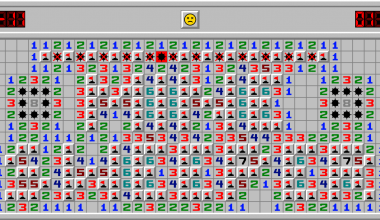Sometimes, English class exams can feel like a really big challenge, right? You know all this incredible stuff about language, but how do you show it all off on an English Language GCSE exam day? We have some tips for the English Language GCSE exam.
Many students find the English Language GCSE exam challenging. However, with the right strategies and tips, you can confidently write it.
In this article, we’ll break down everything you need to know, from understanding different question types to mastering those tricky essay prompts.
Table of contents
- What is the English Language GCSE exam?
- How long does the English Language GCSE exam last?
- Is handwriting important in the English Language GCSE exam?
- How can I prepare for the English Language GCSE exam?
- 1. Understanding the Exam Format
- 2. Developing Reading Skills
- 3. Mastering Creative Writing
- 4. Understanding Writer’s Viewpoints
- 5. Effective Essay Writing
- 6. Brushing Up on Grammar
- 7. Expanding Your Vocabulary
- 8. Active Reading
- 9. Summarizing Texts
- 10. Setting Timed Practice Tests
- 11. Creating a Study Schedule
- 12. Join Study Groups
- 13. Get Feedback
- Are there any tips for managing time effectively during the exam?
- FAQs – Tips for English Language GCSE exam
- Conclusion
- References
- Recommendations
Read Also: Top 20 Pet-Friendly Colleges in the World | 2024
What is the English Language GCSE exam?
The English Language GCSE exam is an important qualification for students in the UK. It is typically taken by students at the end of their secondary education, usually around the age of 16.
The exam assesses a student’s ability to read, write, and understand English language texts.
The exam consists of several sections, including reading comprehension, writing tasks, and language analysis.
In the reading section, students are given various texts and asked questions to test their understanding and interpretation skills. The writing tasks require students to produce different types of written pieces, such as essays or letters.
Preparing for the English Language GCSE exam involves practicing reading and analyzing different types of texts, improving writing skills through regular practice, and familiarizing oneself with grammar rules.
It’s also important to develop good time management skills during the exam since there are multiple sections to complete within a specific timeframe.
Read: Is English GCSE Hard? How Hard is English GCSE?
How long does the English Language GCSE exam last?
The English Language GCSE exam typically lasts for around 2 hours and 15 minutes. However, it’s important to note that this may vary depending on your school or institution’s exam board and specific requirements.
During the exam, you will be tested on various aspects of English language skills, such as reading comprehension, writing, and analysis. It’s a great opportunity to showcase your understanding and proficiency in the language.
Remember to carefully manage your time during the exam, allowing yourself enough time to read through the questions thoroughly and plan your answers.
Also, read: How to Receive Extra Time For GCSE, A-Level and University Exams
Is handwriting important in the English Language GCSE exam?
Yes, handwriting is important in the English Language GCSE exam. While the exam’s primary focus is on your understanding and ability to analyze texts, your handwriting can still impact your overall score.
Clear and legible handwriting ensures that the examiner can easily read your answers, reducing the chances of misunderstandings or misinterpretations.
Moreover, good handwriting also contributes to the overall presentation of your exam paper. A neat and well-organized answer sheet creates a positive impression on the examiner and can potentially enhance their perception of your work.
So, even though handwriting may not be explicitly assessed in terms of content, it certainly plays a role in how your answers are perceived.
Read Also: How To Revise For GCSE English Literature: The Ultimate Guide
How can I prepare for the English Language GCSE exam?
Here are some proven tips to help you be in form for your English GCSE exam;
1. Understanding the Exam Format
The first step in acing your English Language GCSE exam is understanding its format. This exam typically consists of two papers: Paper 1 (Explorations in Creative Reading and Writing) and Paper 2 (Writer’s Viewpoints and Perspectives). Both papers are designed to assess your reading and writing skills.
Read Also: Should College Be Free: YES/NO? Pros And Cons
2. Developing Reading Skills
In Paper 1, you’ll encounter a range of text types. To excel, practice reading a variety of materials, from fiction to non-fiction. Pay close attention to language techniques used by authors to convey their ideas.
3. Mastering Creative Writing
Paper 1 also requires creative writing. Cultivate your storytelling skills by writing short narratives regularly. Focus on creating engaging characters and captivating plots.
4. Understanding Writer’s Viewpoints
In Paper 2, you’ll be analyzing texts from different periods and perspectives. Practice identifying the viewpoints of various authors and understanding their motivations.
5. Effective Essay Writing
To succeed in Paper 2, you must craft well-structured essays. Learn how to create clear introductions, develop arguments logically, and provide evidence to support your points.
6. Brushing Up on Grammar
A strong grasp of grammar is essential for success in the English Language GCSE exam. Review common grammatical rules and practice correcting sentences.
Read Also: What Happens During College Orientation? 2024 Guiding Tips
7. Expanding Your Vocabulary
Enrich your vocabulary by reading widely and noting down unfamiliar words. Try to incorporate these new words into your writing.
8. Active Reading
Develop active reading habits by taking notes as you read. This helps with comprehension and ensures you can recall key details.
9. Summarizing Texts
Practice summarizing complex texts to improve your ability to extract essential information.
10. Setting Timed Practice Tests
Simulate exam conditions by setting timed practice tests. This will help you become familiar with the time constraints and improve your pacing.
11. Creating a Study Schedule
Establish a study schedule that allows you to cover all the necessary topics without feeling overwhelmed.
12. Join Study Groups
Consider joining or forming a study group to discuss difficult concepts and exchange ideas.
13. Get Feedback
Share your practice essays and assignments with teachers or peers to receive constructive feedback.
Also, see: How to Get a 9 in GCSE English Language
Are there any tips for managing time effectively during the exam?
Absolutely! Managing time effectively during an exam is crucial for success. Here are a few tips to help you out:
Firstly, make sure to read through the entire exam before starting. This will give you an idea of what to expect and how much time you should allocate for each section or question. Prioritize the questions based on their difficulty level or point value, so you can tackle the ones that carry more weight first.
Secondly, don’t get stuck on one question for too long. If you’re struggling with a question, move on and return to it later. This way, you can maximize your time by answering the questions that you know well and then use any remaining time to work on the more challenging ones.
Lastly, keep an eye on the clock throughout the exam. Set mini-deadlines for yourself so that you can pace yourself accordingly. This will help ensure that you have enough time to complete all sections or questions within the given timeframe.
Effective time management is all about planning, prioritizing tasks, and staying focused.
Read Also: What Happens If You Don’t Do Your GCSE English Speaking Exam?
FAQs – Tips for English Language GCSE exam
To enhance your essay writing, practice structuring your essays with clear introductions, well-developed arguments, and supporting evidence. Seek feedback on your essays to identify areas for improvement.
Both fiction and non-fiction reading are valuable for Paper 1. Diversify your reading materials to familiarize yourself with different writing styles and techniques.
Set timed practice tests to improve your time management skills. Stick to a study schedule that covers all exam topics without feeling rushed.
When you encounter unfamiliar words, note them and look up their meanings. Try to use these words in your writing to expand your vocabulary.
Study groups can be highly beneficial. They provide a platform to discuss challenging topics, gain different perspectives, and share study strategies.
To identify the author’s viewpoints, analyze the language, tone, and arguments presented in the text. Consider the historical and cultural context in which the text was written.
Conclusion
With these comprehensive tips, you’re well on your way to mastering the English Language GCSE exam.
Remember to practice regularly, seek support from teachers or peers, and manage your time effectively.
By following these strategies, you can confidently approach the exam and achieve the desired results.
References
- piacademy.co.uk – Top tips for English Language GCSE
- owltutors.co.uk – Ways to get a 9 in GCSE English Language
- schoolonline.co.uk – GCSE English Language Exam
Recommendations
- Is English Language A-Level Hard? A-Level English Language Guide
- How Many GCSEs is English Worth?
- Are English Language And Literature Separate GCSEs? 9-1 GCSE English Explained
- What Are The Best Books To Read For GCSE English Language?
- Tips for English Language GCSE Exam | Everything You Need to Know




